
Politics
23:05, 25-Aug-2017
Yingluck's case highlights deep divide in Thailand
By Wang Lei
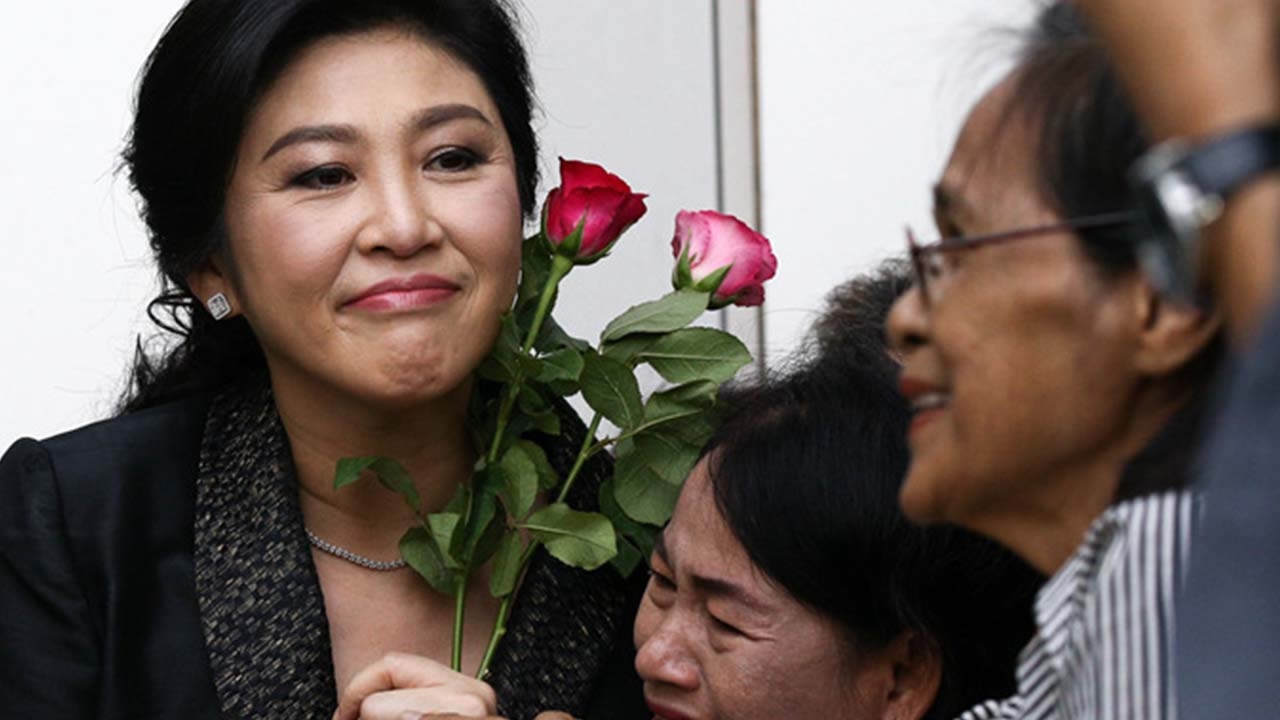
Former Thai Prime Minister Yingluck Shinawatra failed to appear in court at her ruling over a rice subsidy case on Friday and reportedly could have fled the country to join her brother Thaksin Shinawatra – also a former prime minister who fled Thailand in 2008 to avoid jail terms after being overthrown by a coup two years earlier.
Yingluck and her brother are still highly popular among the rural poor, but their opponents want the case to seal the end of the Shinawatras' political life.
Like her brother, Yingluck was ousted by a military coup in 2014. She could face up to 10 years in prison if convicted in a negligence case brought by the ruling junta over her role in a rice subsidy scheme, in which her government bought rice from farmers at up to 50 percent higher than market prices, resulting in multi-billion dollar losses.
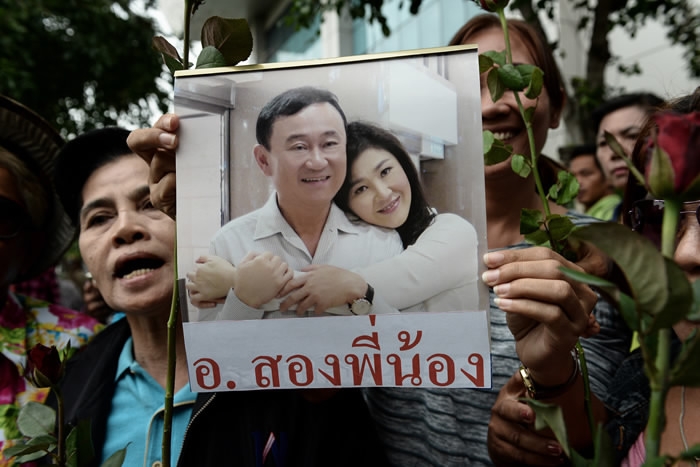
Supporters of former Prime Minister Yingluck Shinawatra holds an image of her with her brother, ex-Prime Minister Thaksin Shinawatra, before Yingluck arrives at the Constitutional Court in Bangkok , Thailand, August 5, 2016. /AFP Photo
Supporters of former Prime Minister Yingluck Shinawatra holds an image of her with her brother, ex-Prime Minister Thaksin Shinawatra, before Yingluck arrives at the Constitutional Court in Bangkok , Thailand, August 5, 2016. /AFP Photo
Rural poor vs army-aligned elite
The rice subsidy scheme, which contributed to Yingluck's political demise, was part of her campaign promise to boost rural income levels.
Policies of Thailand's first female prime minister were a continuation of her brother, who successfully tapped into the aspirations of the country's underdogs from the populous northern and northeastern regions.
Welfare schemes like that gave the Shinawatras enormous support among the rural poor and millions of urbanized villagers who work in Thailand's big cities.
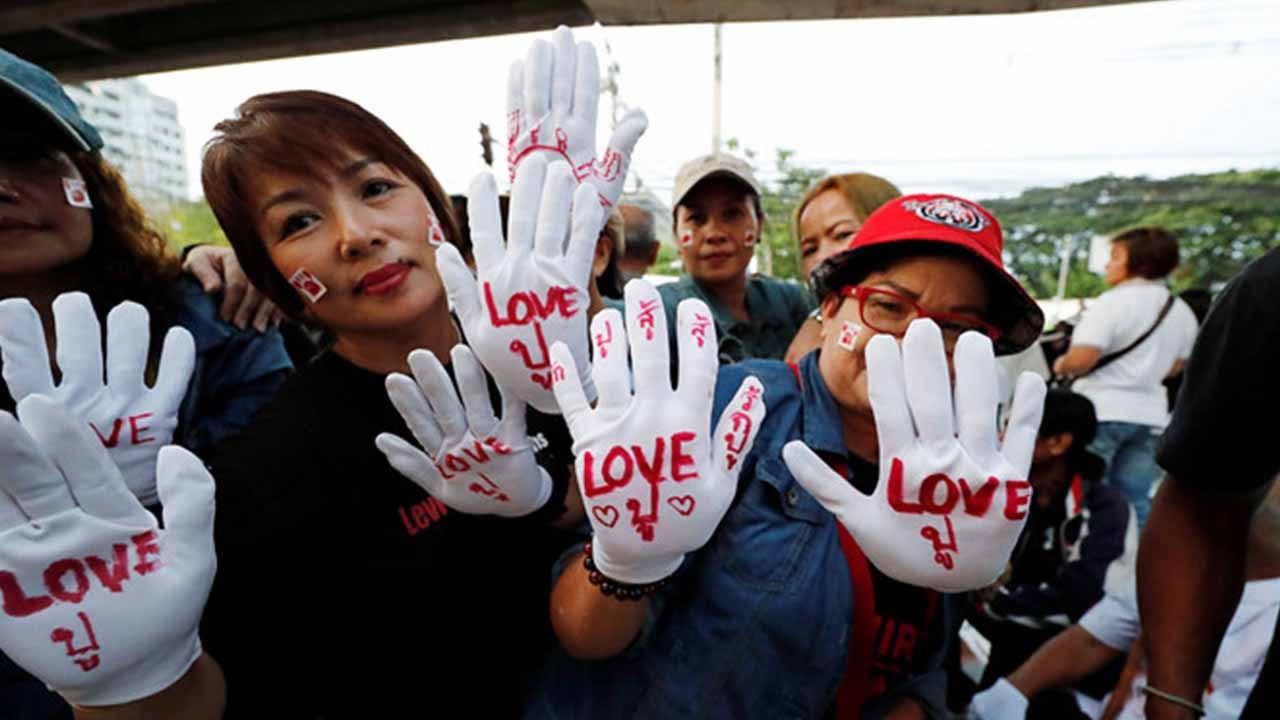
On the other hand, the military, the elite bureaucracy, business and middle classes in Bangkok as well as voters from the south are overwhelmingly against the Shinawatra clan.
After Thaksin's fall in 2006, supporters of him and his sister staged several major protests against the junta, wearing red shirts. In the meantime, their opponents, who held counter demonstrations, were known as the "yellow shirts."
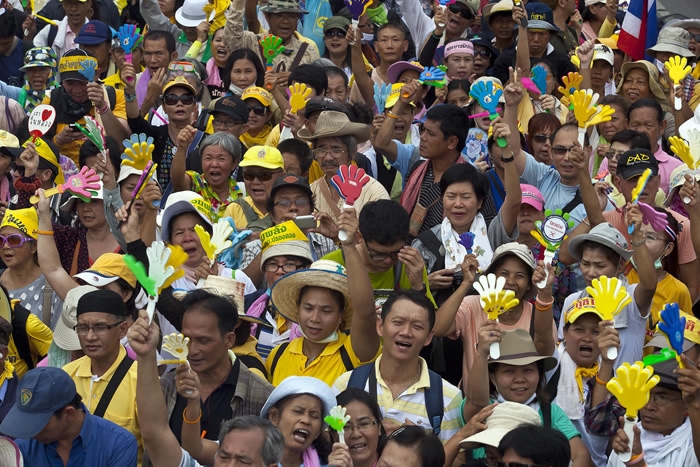
Members of the Yellow Shirts gather against a proposed reconciliation debate outside the parliament buidling in Bangkok, Thailand, June 1, 2012. /AFP Photo
Members of the Yellow Shirts gather against a proposed reconciliation debate outside the parliament buidling in Bangkok, Thailand, June 1, 2012. /AFP Photo
Coups and the monarchy
The military, which brought down both Shinawatras, has been playing a pivotal role in Thai politics since a bloodless revolt that abolished absolute monarchy in 1932.
According to a BBC story in 2014, Thailand had witnessed 12 coups and seven attempted ones since 1932, while some other reports put the number of coups and attempted coups at between 20 and 30, making Thailand one of the most coup-prone countries in the world.
A Huffington Post story in 2014 suggested the powerful military could step in politics at any time. When doing so, the generals often cited the Martial Law Act of 1914 that gives the armed forces "superior power" during times of crisis.
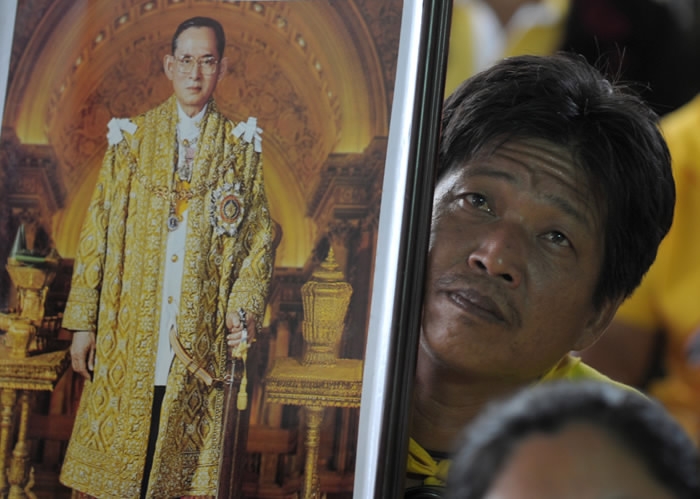
An anti-government protester holds a portrait of King Bhumibol Adulyadej during a protest at the prime minister's temporary offices in Bangkok, Thailand, November 25, 2008. /AFP Photo
An anti-government protester holds a portrait of King Bhumibol Adulyadej during a protest at the prime minister's temporary offices in Bangkok, Thailand, November 25, 2008. /AFP Photo
Late King Bhumibol Adulyadej, though a constitutional monarch, wielded immense authority during his seven-decade reign and acted as a stabilizing power among competing forces in the country. He famously called Thailand's then military ruler to his palace in 1992 and humiliated him on television for ordering a bloody crackdown on demonstrations, forcing the prime minister to resign.
But after Bhumibol's death, his successor Maha Vajiralongkorn may lack the late king's deep military links and the level of respect he enjoyed among various sections of the society, which could add to the uncertainties in a divided Thailand.
"There's no light at the end of tunnel in terms of demilitarization any time soon," Paul Chambers, an expert on the Thai military and monarchy, told AFP last October.
3297km

SITEMAP
Copyright © 2018 CGTN. Beijing ICP prepared NO.16065310-3
Copyright © 2018 CGTN. Beijing ICP prepared NO.16065310-3